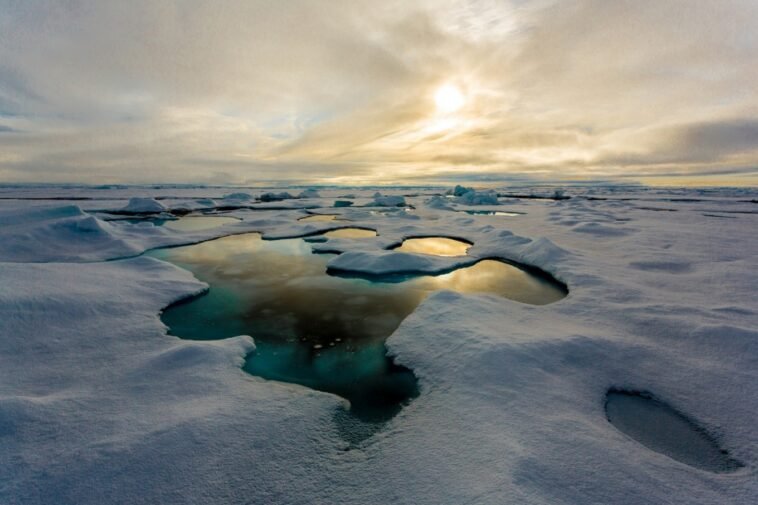Viruses need hosts like humans, animals, plants or fungi to replicate and spread. They can jump to a new one that lacks immunity, as seen during the COVID-19 pandemic. Scientists in Canada wanted to investigate how climate change might affect spill over risk. They examined samples from the Arctic landscape of Lake Hazen. It is the largest lake in the world entirely north of the Arctic Circle and “was truly unlike any other place I’ve been,” said researcher Graham Colby. The team sampled soil that becomes a riverbed for melted glacier water in the summer, as well as the lakebed itself — which required clearing snow and drilling through two meters of ice, even in May when the research was carried out. They used ropes and a snowmobile to lift the lake sediment through almost 300 meters (980 feet) of water, and samples were collected.
“Resorting to a comparative analysis, we show that the risk of viral spill over increases with runoff from glacier melt – a proxy for the effect of climate change,” says Aris-Brosou, an Associate Professor in the Department of Biology. “Should climate change also shift species range of potential viral vectors and reservoirs northwards, the High Arctic could become fertile ground for emerging pandemics.” Climate change could make High Arctic fertile ground for emerging pandemics. An analysis performed by researchers at the University of Ottawa has shown melting glaciers increase the risk of viral spill over, suggesting the impact of climate change could lead viruses to infect new hosts in the Arctic
Ms. Lemieux developed an algorithm to determine the risk of viral spill over. Results suggested the risk was greater for lake samples taken from larger waterways, which contain more meltwater from glaciers. As global temperatures rise, glaciers in this area are expected to become larger, generating more meltwater, and hence increasing spillover risk.
“As both climate change and pandemics are reshaping the world we live in, understanding how these two processes interact has become critical,” says Aris-Brosou. These studies show that we are effecting a world untouched. We don’t know what stands there and climate change is exposing us to some of these things that might prove harmful for humans.





